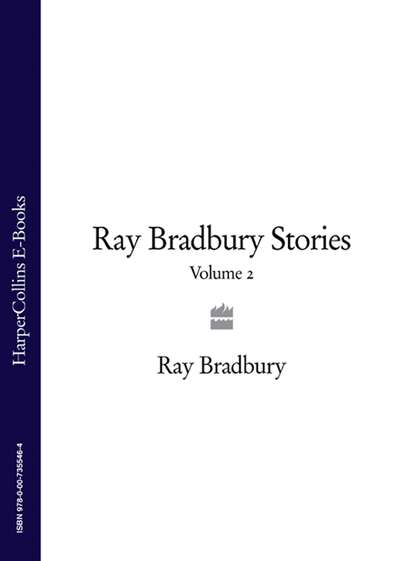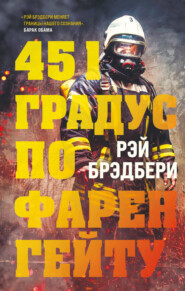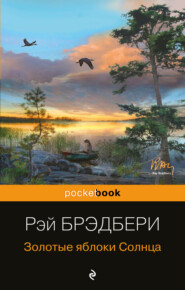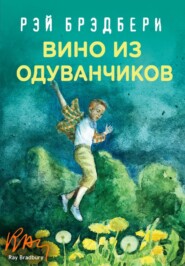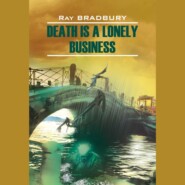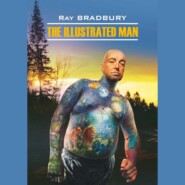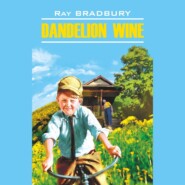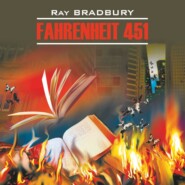По всем вопросам обращайтесь на: info@litportal.ru
(©) 2003-2024.
✖
Ray Bradbury Stories Volume 2
Настройки чтения
Размер шрифта
Высота строк
Поля
It was noon, with the sun directly over them, pinning their shadows under them as they started down the steps of the Hotel Esposa. Behind them, the birds fluted in their bamboo cages, and water ran in a little fountain bath. They were as neat as they could get, their faces and hands washed, their nails clean, their shoes polished.
Across the plaza two hundred yards away stood a small group of men, in the shade of a store-front overhang. Some of the men were natives from the jungle area, with machetes gleaming at their sides. They were all facing the plaza.
John Webb looked at them for a long while. That isn’t everyone, he thought, that isn’t the whole country. That’s only the surface. That’s only the thin skin over the flesh. It’s not the body at all. Just the shell of an egg. Remember the crowds back home, the mobs, the riots? Always the same, there or here. A few mad faces up front, and the quiet ones far back, not taking part, letting things go, not wanting to be in it. The majority not moving. And so the few, the handful, take over and move for them.
His eyes did not blink. If we could break through that shell – God knows it’s thin! he thought. If we could talk our way through that mob and get to the quiet people beyond.… Can I do it? Can I say the right things? Can I keep my voice down?
He fumbled in his pockets and brought out a rumpled cigarette package and some matches.
I can try, he thought. How would the old man in the Ford have done it? I’ll try to do it his way. When we get across the plaza, I’ll start talking, I’ll whisper if necessary. And if we move slowly through the mob, we might just possibly find our way to the other people and we’ll be on high ground and we’ll be safe.
Leonora moved beside him. She was so fresh, so well groomed in spite of everything, so new in all this oldness, so startling, that his mind flinched and jerked. He found himself staring at her as if she’d betrayed him by her salt-whiteness, her wonderfully brushed hair and her cleanly manicured nails and her bright-red mouth.
Standing on the bottom step, Webb lit a cigarette, took two or three long drags on it, tossed it down, stepped on it, kicked the flattened butt into the street, and said, ‘Here we go.’
They stepped down and started around the far side of the plaza, past the few shops that were still open. They walked quietly.
‘Perhaps they’ll be decent to us.’
‘We can hope so.’
They passed a photographic shop.
‘It’s another day. Anything can happen. I believe that. No – I don’t really believe it. I’m only talking. I’ve got to talk or I wouldn’t be able to walk,’ she said.
They passed a candy shop.
‘Keep talking, then.’
‘I’m afraid,’ she said. ‘This can’t be happening to us! Are we the last ones in the world?’
‘Maybe next to the last.’
They approached an open air carnecería.
God! he thought. How the horizons narrowed, how they came in. A year ago there weren’t four directions, there were a million for us. Yesterday they got down to four; we could go to Juatala, Porto Bello, San Juan Clementas, or Brioconbria. We were satisfied to have our car. Then when we couldn’t get gas, we were satisfied to have our clothes, then when they took our clothes, we were satisfied to have a place to sleep. Each pleasure they took away left us with one other creature comfort to hold on to. Did you see how we let go of one thing and clutched another so quickly? I guess that’s human. So they took away everything. There’s nothing left. Except us. It all boils down to just you and me walking along here, and thinking too goddamn much for my own good. And what counts in the end is whether they can take you away from me or me away from you, Lee, and I don’t think they can do that. They’ve got everything else and I don’t blame them. But they can’t really do anything else to us now. When you strip all the clothes away and the doodads, you have two human beings who were either happy or unhappy together, and we have no complaints.
‘Walk slowly,’ said John Webb.
‘I am.’
‘Not too slowly, to look reluctant. Not too fast, to look as if you want to get it over with. Don’t give them the satisfaction, Lee, don’t give them a damn bit.’
‘I won’t.’
They walked. ‘Don’t even touch me,’ he said, quietly. ‘Don’t even hold my hand.’
‘Oh, please!’
‘No, not even that.’
He moved away a few inches and kept walking steadily. His eyes were straight ahead and their pace was regular.
‘I’m beginning to cry, Jack.’
‘Goddamn it!’ he said, measuredly, between his teeth, not looking aside. ‘Stop it! Do you want me to run? Is that what you want – do you want me to take you and run into the jungle, and let them hunt us, is that what you want, goddamn it, do you want me to fall down in the street here and grovel and scream, shut up, let’s do this right, don’t give them anything!’
‘All right,’ she said, hands tight, her head coming up. ‘I’m not crying now. I won’t cry.’
‘Good, damn it, that’s good.’
And still, strangely, they were not past the carnecería. The vision of red horror was on their left as they paced steadily forward on the hot tile sidewalk. The things that hung from hooks looked like brutalities and sins, like bad consciences, evil dreams, like gored flags and slaughtered promises. The redness, oh, the hanging, evil-smelling wetness and redness, the hooked and hung-high carcasses, unfamiliar, unfamiliar.
As he passed the shop, something made John Webb strike out a hand. He slapped it smartly against a strung-up side of beef. A mantle of blue buzzing flies lifted angrily and swirled in a bright cone over the meat.
Leonora said, looking ahead, walking, ‘They’re all strangers! I don’t know any of them. I wish I knew even one of them. I wish even one of them knew me!’
They walked on past the carnecería. The side of beef, red and irritable-looking, swung in the hot sunlight after they passed.
The flies came down in a feeding cloak to cover the meat, once it had stopped swinging.
The Drummer Boy of Shiloh (#ulink_fd6120c5-a09d-5d94-8d15-85f63f96ca7d)
In the April night, more than once, blossoms fell from the orchard trees and lit with rustling taps on the drumskin. At midnight a peach stone left miraculously on a branch through winter, flicked by a bird, fell swift and unseen, struck once, like panic, which jerked the boy upright. In silence he listened to his own heart ruffle away, away, at last gone from his ears and back in his chest again.
After that, he turned the drum on its side, where its great lunar face peered at him whenever he opened his eyes.
His face, alert or at rest, was solemn. It was indeed a solemn time and a solemn night for a boy just turned fourteen in the peach field near the Owl Creek not far from the church at Shiloh.
‘… thirty-one, thirty-two, thirty-three …’
Unable to see, he stopped counting.
Beyond the thirty-three familiar shadows, forty thousand men, exhausted by nervous expectation, unable to sleep for romantic dreams of battles yet unfought, lay crazily askew in their uniforms. A mile yet farther on, another army was strewn helter-skelter, turning slow, basting themselves with the thought of what they would do when the time came: a leap, a yell, a blind plunge their strategy, raw youth their protection and benediction.
Now and again the boy heard a vast wind come up, that gently stirred the air. But he knew what it was, the army here, the army there, whispering to itself in the dark. Some men talking to others, others murmuring to themselves, and all so quiet it was like a natural element arisen from south or north with the motion of the earth toward dawn.
What the men whispered the boy could only guess, and he guessed that it was: Me, I’m the one, I’m the one of all the rest won’t die. I’ll live through it. I’ll go home. The band will play. And I’ll be there to hear it.
Yes, thought the boy, that’s all very well for them, they can give as good as they get!
For with the careless bones of the young men harvested by night and bindled around campfires were the similarly strewn steel bones of their rifles, with bayonets fixed like eternal lightning lost in the orchard grass.
Me, thought the boy, I got only a drum, two sticks to beat it, and no shield.
There wasn’t a man-boy on this ground tonight did not have a shield he cast, riveted or carved himself on his way to his first attack, compounded of remote but nonetheless firm and fiery family devotion, flag-blown patriotism and cocksure immortality strengthened by the touchstone of very real gunpowder, ramrod, miniéball and flint. But without these last the boy felt his family move yet farther off away in the dark, as if one of those great prairie-burning trains had chanted them away never to return, leaving him with this drum which was worse than a toy in the game to be played tomorrow or some day much too soon.
The boy turned on his side. A moth brushed his face, but it was peach blossom. A peach blossom flicked him, but it was a moth. Nothing stayed put. Nothing had a name. Nothing was as it once was.





